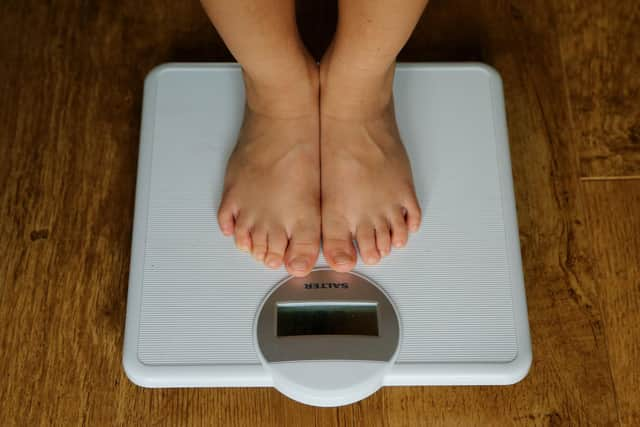More than one in five Year 6 children in Sheffield are obese
and live on Freeview channel 276
The Royal College of GPs said access to healthy food "should be a right and not a privilege," as a study found children in the most deprived areas of England are more than twice as likely to be obese than those in the least deprived.
NHS Digital figures show 22.3 per cent of Year 6 pupils in Sheffield in 2019-20 were obese, of which 5.8 per cent were severely obese, with a body mass index (BMI) in the top 0.4 per cent for a child's age and sex.
Advertisement
Hide AdAdvertisement
Hide AdAdditionally, 13.3 per cent of children were overweight. That means 35.7 per cent of Sheffield's youngsters are unhealthily overweight when they finish primary school. The data comes from the Government's annual National Child Measurement Programme – part of its approach to tackling obesity – which records the height and weight of Year 6 and reception-age children in state-maintained schools across England to monitor obesity trends.


It revealed that 27.5 per cent of 10 and 11-year-old children living in the most deprived areas of England were obese compared to 11.9 per cent of those living in the least deprived areas.
Among reception-age children, 13.3 per cent in the most deprived areas were obese compared to 6 per cent in the least deprived.
Professor Rachel Batterham, special adviser on obesity for the Royal College of GPs, said the impact of deprivation on childhood obesity rates nationally is "alarming".
Advertisement
Hide AdAdvertisement
Hide AdShe said: "Access to healthy food should be a right and not a privilege. The gap in obesity prevalence between children from the most deprived and least deprived areas is stark and growing. It is clear that socio-economic factors such as under-employment or poverty play a key role in driving obesity and poor health, and that a whole-government approach is critical in order to reduce health inequalities and obesity rates."
Across England, obesity prevalence among both reception and Year 6 pupils rose in 2019-20, to 9.9 per cent and 21 per cent respectively. Caroline Cerny of Obesity Health Alliance, said: “In a year when public health has been propelled to the forefront of politics, we now need action on child health – not just words. Sheffield City Council was approached for a comment.
In these confusing and worrying times, local journalism is more vital than ever. Thanks to everyone who helps us ask the questions that matter by taking out a digital subscription or buying a paper. We stand together. Nancy Fielder, editor.
Comment Guidelines
National World encourages reader discussion on our stories. User feedback, insights and back-and-forth exchanges add a rich layer of context to reporting. Please review our Community Guidelines before commenting.